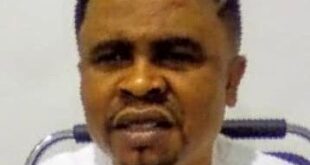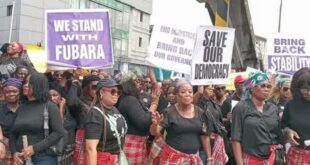By Joel Anekwe
Civil society and community based organisations in Rivers State have rated the governor, Nyesom Wike low on inclusive governance, adding that in the past four years of his administration, the governor has operated with little or no input from civil society or community representatives.
This position runs contrary to accolades showered on the governor from several quarters within and outside the state for delivering infrastructure and other projects.
The CSOs and CBOs argued that because of non-participation of communities in the choice of and execution of the projects provided by the governor for them (communities), most of the projects did not meet the needs of the communities and therefore made little or no impact on them.
The stakeholders added that because there was no community participation in the project, there is no community ownership of the project, making some contractors to deliver shoddy jobs and in some circumstances abandon some of the projects to the detriment of the people whose money were are embezzled in the process.
They particularly chided the Wike administration for abandoning most of the agricultural, health and education project of the previous administration in the state, noting that this had led to increased unemployment and insecurity in the state.
The groups, which also included community representatives, barred their minds at a one-day interactive session with key stakeholders on the ‘Challenges of Inclusive Governance Methodologies in Rivers State,’ organised by Center for Environment, Human Rights and Development (CEHRD) and National Endowment for Democracy (NED) in Port Harcourt at the weekend.
Some of the groups that participated in the interactive session include, Social Action (SA), Justice Empowerment Initiative (JEI), Abual Odual Kupe Foundation and some community representatives.
The objectives of the interactive session, according to the organisers, were to engage strategic stakeholders to elicit information, build collaboration and use the information gathered to strengthen the capacity of community oversight committees to articulate their governance and development priorities to government and demand government accountability in the Niger Delta.
The output of the interactive session, which would also be held in Rivers, Akwa Ibom and Bayelsa states, would form part of the action plans to effectively engage the government.
In his presentation on ‘Inclusive Governance in Rivers State – The Role of Civil Society Organisations/Key Stakeholders, Challenges and Case Studies,’ Kentebe Ebiaridor pointed out that the oversight committees would guide communities in generating inclusive solutions and strategies to encourage government to implement policies for effective delivery of target Social Development Goal (SDG) 16.
He added that it would also “promote peaceful and inclusive societies for sustainable development, provide access to justice for all and build effective, accountable and inclusive institutions at all levels.
He said that specific areas the initiatives are expected to address include environmental degradation, gender based violence, health, sanitation and education.
Participants however agreed that to be able to effectively engage the government the different CSOs must forge a united front and learn to speak with one voice noting that lack of unity and corruption among some of the organisations had impacted negatively on the activities of the CSOs.
 PH Mundial – Port Harcourt Online Newspaper News Across The Region
PH Mundial – Port Harcourt Online Newspaper News Across The Region




